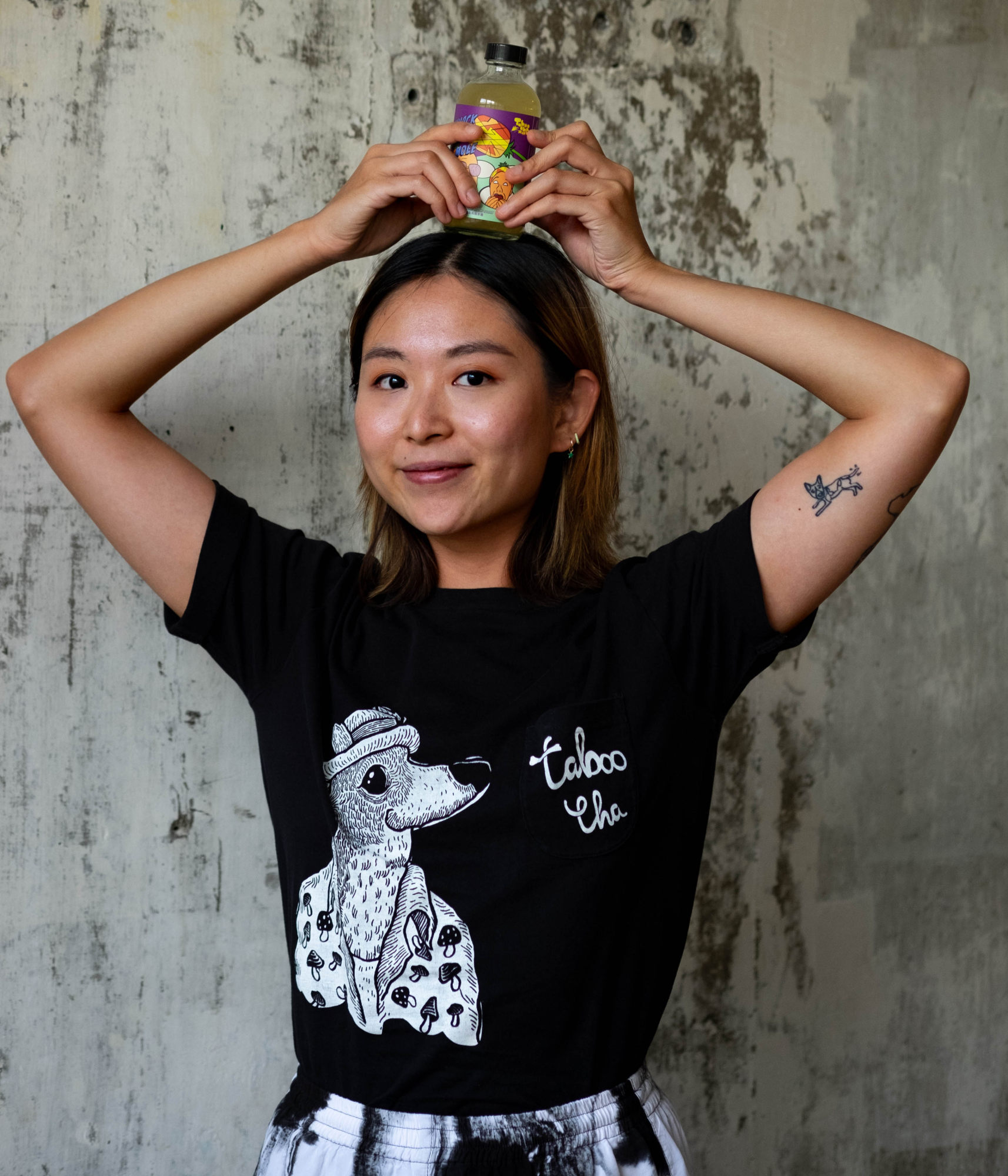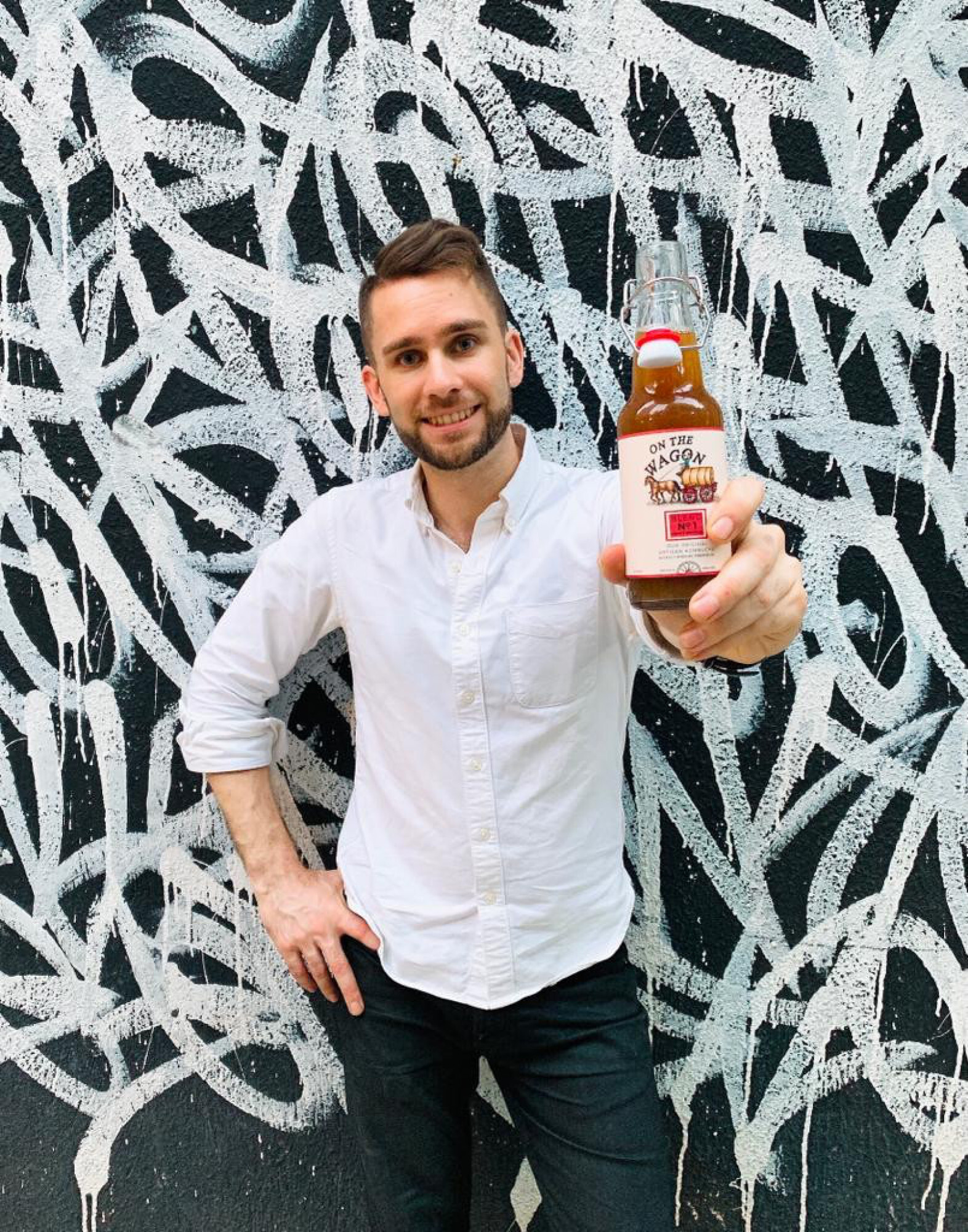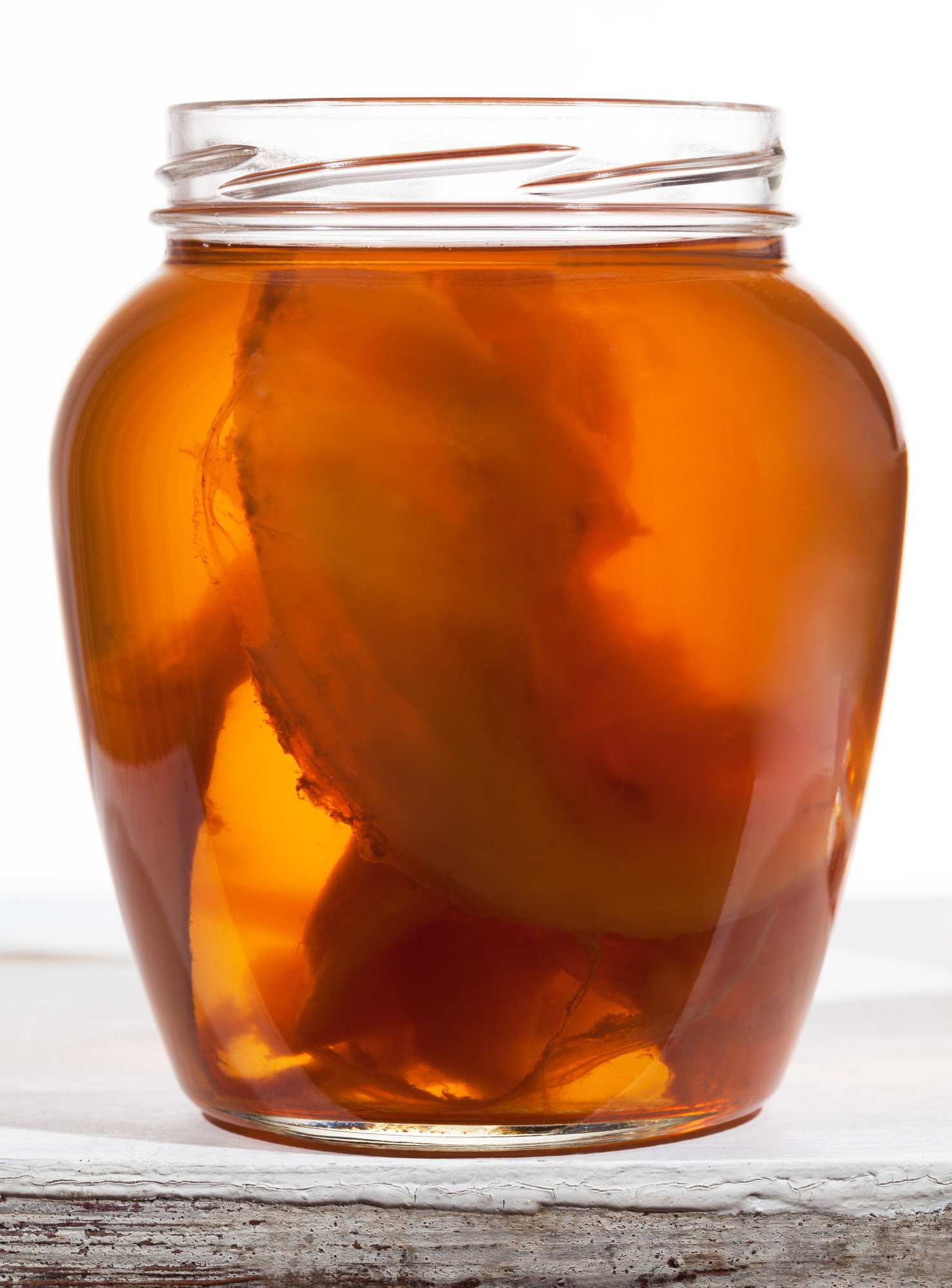
Explainer | Kombucha and the health benefits of tea drink loved by Lady Gaga, Kourtney Kardashian, Halle Berry and Gwyneth Paltrow
- Kombucha is made by adding bacteria and yeast to sweet tea and fermenting the mixture for 10 to 40 days to produce a fizzy, sweet-and-sour probiotic drink
- Lady Gaga and Kourtney Kardashian are fans of kombucha, which is said to prevent cancer, stimulate the immune system and improve digestion and liver function
Do you want to stay young and healthy even if it means drinking a fermented tea that tastes like sweet-and-sour vinegar? Then kombucha is for you.
Celebrities including Lady Gaga, Zoe Kravitz, Kourtney Kardashian, Gwyneth Paltrow and Halle Berry have been obsessed with the probiotic-packed fermented drink in recent years.
A mushroom-like film formed from the yeast and bacteria appears on the surface, which is why kombucha is also known as “mushroom tea”. That film can be used to start fermenting a fresh batch of kombucha.

The acetic acid found in vinegar and other acidic compounds, low-level alcohol and gases are produced during fermentation, making it carbonated.
It has been quietly consumed for centuries in China, Russia and Japan, but its popularity has soared of late. Devotees say its health benefits range from preventing cancer and stimulating the immune system to improving digestion and liver function, as well as bringing about hormonal balance.
“Kombucha has good bacteria and enzymes that help maintain a healthy gut, and of course, it’s great for regular bowel movements. It also has B vitamins and antioxidants,” Lisa Lam, co-founder of Taboocha, Hong Kong’s first kombucha brewery, says.
“I started making it because it helped me, and I thought our community needed a drink that was healthy but at the same time tasted great. A lot of our customers regularly give us first-hand positive feedback on the drink’s health benefits.”
Kombucha sold in shops is a far cry from the drink consumed in ancient China, which was a simple combination of sugar, tea, water and yeast to kill bacteria in dirty water. Now it can be a sweetened fizzy drink with similar sugar content to that of iced tea – and that has some people worried.

To avoid hidden sugars, Ash Clark, co-founder of Hong Kong artisan kombucha suppliers On The Wagon, believes you must make sure what is being produced is authentic.
“When buying kombucha, it’s important to check the ingredients for preservatives or additives, and only buy kombucha which must be kept refrigerated, or else what you’re buying is not authentic, raw kombucha,” Clark explains.
Probiotics provide healthy bacteria to the gut which can improve digestion, reduce inflammation and even promote weight loss.
“I also brew my own kombucha for myself and my family, but keep a close watch on the sugar level I am using,” she says.

“Unlike coffee, which is a stimulant, [meaning that drinking] too much can leave you feeling anxious and suffering from insomnia, kombucha provides a more calm and focused energy. The L-theanine in the tea counteracts the harmful effects of caffeine in your system,” Lau adds.
Even though its benefits are not scientifically proven, many of kombucha’s health gains have long been promoted, as it has been around since the third century BC, Clark notes.

There are some risks to consider. The US-based Mayo Clinic reports cases of adverse effects in kombucha tea drinkers, such as an upset stomach, infections and allergic reactions.
Kombucha tea is often brewed in homes under non-sterile conditions, which can lead to contamination. When improperly manufactured ceramic pots have been used for brewing, lead poisoning has occurred – the acids in the tea can leach lead from the ceramic glaze.
Scientifically backed or not, Hongkongers like Lam and Clark are making their own kombucha brew with fervour, while others are experimenting with diverse taste sensations to broaden its appeal.
James Barker, founder of Kuppa Kombucha, describes it as a sparkling probiotic tea with balanced acidity.
“Every brewery will have their own style of making and flavouring their product range; some will harness natural flavours from the fermentation process, others will add fruit juice, others will infuse spices and herbs,” he says.
“To balance the flavour profile, we add stevia leaf as a natural sweetener instead of sugar. Finally, we use bespoke blends of tea and natural ingredients to infuse into the mixture, giving it unique flavour properties.”

Barker adds: “For some people who prefer a drink with minimal acidity, I would recommend enjoying kombucha in a glass over ice. This helps dilute the drink and take the edge off a little.”
Bars in Hong Kong such as Penicillin in Hollywood Road, Central, are using kombucha as a cocktail ingredient.
“It has been incredible for opening up the range of our drink service. We mix kombuchas with fresh juices, spices, oils, to create elegantly balanced beverages/cocktails,” a Penicillin bar staff member says.
“Almost any liquid with enough sugar can be fermented into kombucha. We’ve made great kombucha from infusions of camomile, lemon, elderflower and rose, as well as from the juice of apples, mango, carrots, and asparagus.”
There’s no doubt the health drink’s popularity and appeal is growing.
“The growing market for kombucha can be attributed to increasing demand for locally produced craft brands, and a growing number of consumers seeking healthier, great-tasting non-alcoholic beverage options,” says Barker.

Clark believes that, as well as being “tasty, healthy and usually low in sugar”, kombucha has other qualities.
“For us, it’s funky and interesting. We approach kombucha like a craft beer or a natural wine. When it’s well-crafted and not messed with like so many of the larger brands do these days, it’s a truly delicious and fascinating daily beverage,” he says.
To learn how to make your own kombucha safely at home, and to secure a Scoby starter, Foodcraft in Hong Kong offers a two-hour workshop at its Kennedy Town kitchen. See the company’s website for details.

